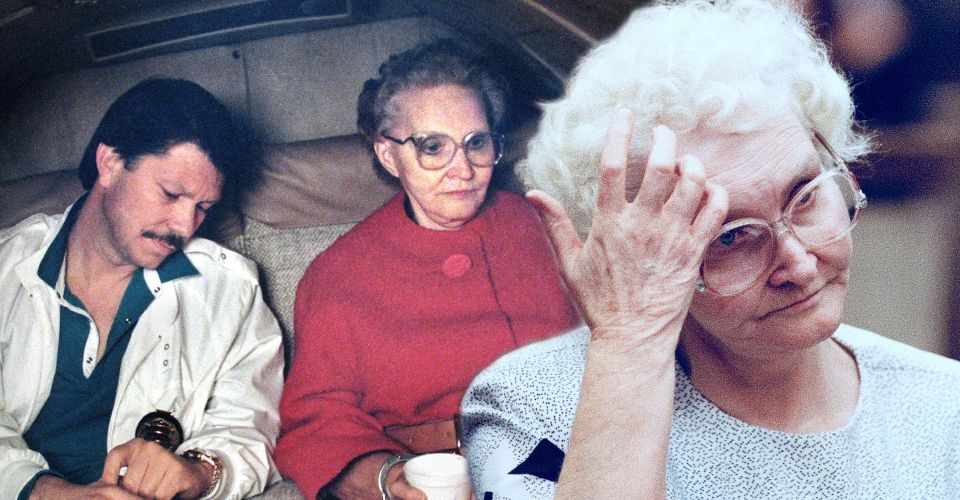Everything Worst Roommate Ever Leaves Out About Dorothea Puente

Warning: Contains SPOILERS for Worst Roommate Ever.
Netflix’s Worst Roommate Ever recounts tales of several nightmare living situations, but what does the docuseries leave out about Dorothea Puente? First released on March 1st, 2022, Worst Roommate Ever is a true-crime documentary streaming series that focuses on the unbelievable stories of nightmare housemates, as told by their surviving victims and the law enforcement officers that caught them. The Netflix and Blumhouse co-production has garnered a mixed reception upon release, with Worst Roommate Ever guilty of glossing over many victims’ stories, particularly in the case of Dorothea Puente.
Worst Roommate Ever episode 1, “Call Me Grandma,” kicks the Netflix true-crime series off in harrowing fashion, centering on the case of Dorothea Puente – a convicted serial killer dubbed the “Death House Landlady.” Puente ran a boarding house in Sacramento, California, in the 1980s, murdering various elderly and mentally disabled tenants to cash their Social Security checks. Puente’s sickening scheme is only discovered due to the persistence of a social worker named Judy, who raises the alarm after one of her former patients, Alvaro Gonzales Montoya, disappears without a trace while under Puente’s care.
Yet despite Worst Roommate Ever presenting a shocking tableau of the Death House Landlady’s crimes, the Netflix documentary is only the tip of the iceberg for Dorothea Puente’s long and tragic story. From her four failed marriages to Puente’s unconfirmed murders, Worst Roommate Ever‘s Dorothea Puente cuts a harrowing figure in the true-crime landscape. Here’s everything Worst Roommate Ever leaves out about Dorothea Puente.
Dorothea Puente’s Upbringing & Early Years

While Worst Roommate Ever briefly touches upon Puente’s history as a sex worker in Olympia, Washington, the Netflix documentary fails to capture Puente’s tragic early years that heavily shaped the callous caregiver she would later become. Dorothea Puente, née Dorothea Helen Gray, was born on January 9, 1929, in Redlands, California. She was the sixth of seven children, all of whom struggled in a less-than-stable family environment, with little income and love to speak of in the Gray house. Puente’s father died of tuberculosis in 1937 when she was just eight years old, while her mother, a reported alcoholic, routinely abused her children. The regular beatings for Dorothea and her siblings only stopped in 1938 after their mother died in a motorcycle accident, forcing all seven Gray children into the care system.
Now orphaned, Puente and her siblings splintered off in different directions, bouncing between foster care and relatives’ homes without ever truly finding a permanent home. This lack of security and stability, coupled with allegations of sexual abuse, meant Puente struck out on her own when she was 16, moving to Olympia, where she tried to make a living as a prostitute. Although briefly marrying from 1945 to 1948 (more on this later), Puente subsequently turned back to criminal activities after losing her marital allowance, bouncing a check in San Bernadino and spending four months in jail as a result.
In an action that would act as a signpost for her behaviors to come, Puente then skipped town during her probationary period but was never tracked by the authorities. Puente next moved to San Francisco, where she became embroiled in a culture of gambling and binge drinking, with Puente’s new husband sending her to the psychiatric ward at DeWitt state hospital for an undetermined amount of time on account of her erratic behavior. While held at DeWitt, doctors diagnosed Puente as a pathological liar with an unstable personality, but once again, these red flags failed to follow her as she settled in Sacramento, California, in the 1970s.
The vast majority of Puente’s younger years are glossed over by Worst Roommate Ever, with the Netflix true-crime documentary keen to move onto the salacious details of Puente’s heinous crimes. Yet the trauma that Puente endured at the hands of her mother coupled with significant time spent as a sex worker and periods of incarceration undoubtedly played a big part in shaping the monster that Dorothea Puente grew to become.
Dorothea’s Four Prior Marriages

As with Dorothea Puente’s sad upbringing, her failed marriages are also briefly touched upon in Worst Roommate Ever. However, what the Netflix true-crime series fails to do is display how these four marriages acted as warnings signposting Puente’s propensity for deception, criminal activity, and violence – which could have stopped her from ever becoming a reputable figure in the Sacramento area. Puente’s first marriage, at the age of sixteen, was to a soldier named Fred McFaul, who had just returned from the Pacific theater of World War II. The newlywed couple had two daughters between 1946 and 1948, but Puente quickly struggled in her new maternal role, sending one child to live with relatives in Sacramento and placing the other for adoption by the end of 1948, after which time McFaul divorced her.
Puente’s next marriage arrived in 1952, with Puente tying the knot to merchant seaman Axel Bren Johansson in San Francisco. While married to Johansson, Puente’s drinking became much heavier, with Puente creating a fake persona and calling herself “Teya Singoalla Neyaarda” while claiming to be a Muslim of Egyptian and Israeli descent. This marriage was even more turbulent than Puente’s last, with Johansson’s frequent trips to sea irritating Puente, to which she retaliated by inviting men into their marital bed and gambling away Johansson’s money. After Puente allegedly had sexual relations with a police offer at a San Francisco brothel, Johansson had her committed – but despite these trials and tribulations, this represented Puente’s longest marriage by far, with their union lasting from 1952 to 1966.
Dorothea Puente’s subsequent two marriages were far shorter-lived, with her psychopathy now in full bloom as she attempted to open several boarding homes across the late 1960s and early 1970s. In 1968, Dorothea married Roberto Jose Puente, from whom she derived her last name until her death in 2011, but the marriage lasted just sixteen months. Puente’s final marriage was to Pedro Angel Montalvo, with this particular union lasting less than eight days after Montalvo fled their home out of fear (per the 1995 book Disturbed Ground).
Dorothea Puente’s Unconfirmed Murders

The bulk of Netflix’s true story documentary Worst Roommate Ever episode 1 covers Puente’s crimes at her Sacramento property, detailing the nine murder charges attributed to the Death House Landlady, although Puente was ultimately only convicted of three murders. In the years following her incarceration, other families have come forward to claim their lost loved ones as victims of Puente, with six other unconfirmed murders being attributed to the warped caregiver in the late 1970s and early 1980s. For the sake of expediency, Worst Roommate Ever‘s Dorothea Puente coverage only extends to the confirmed murders that occurred while she had lodgers, but given her modus operandi and lack of remorse, it is highly plausible that Puente is responsible for more murders than were ever attributed to her name.
About The Author

















